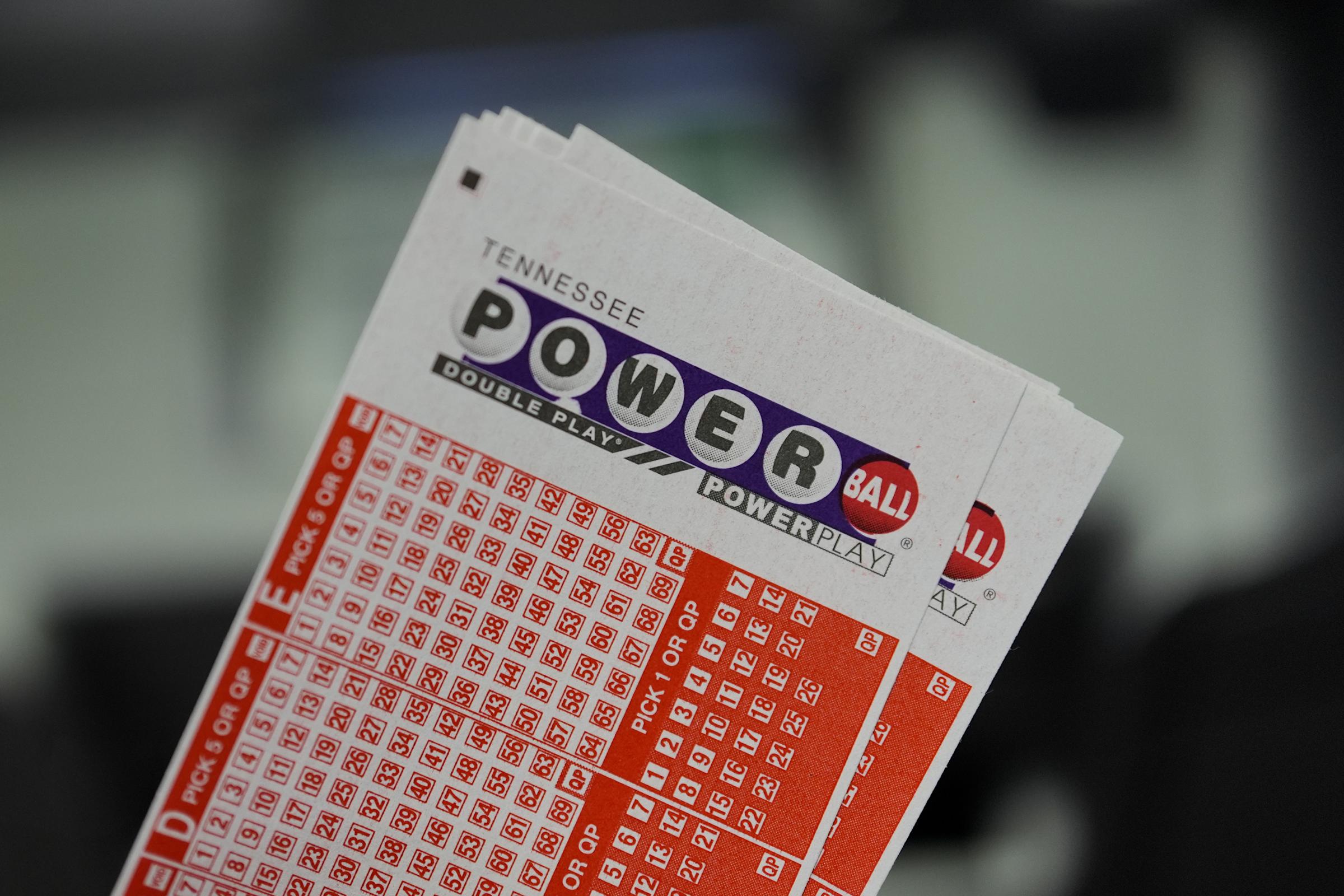After 41 drawings with no jackpot winner, the Powerball’s big prize stands at $1.8 billion, the second largest in the lottery’s history. The next drawing is Saturday.
The odds of winning a lottery jackpot are slim — 1 in 292.2 million for Powerball — but we’re saying there’s a chance.
So imagine for a moment you do win. How much of the prize would you take home after taxes? We’ll break it down — and suggest five ways to invest your windfall safely.
No matter how lucky you are, Uncle Sam will always come knocking. The IRS taxes lottery prizes differently depending on how the winner chooses to get paid. You have two choices: lump sum payout or annual payments spread over 30 years. In truth, most lottery winners opt for the cash lump sum upfront, even though it ultimately means fewer dollars in their pocket — but still a whole lot.
What do federal taxes look like on a lump sum payment? The federal tax rate on any prize over $5,000 is 24%, which gets immediately deducted from your winnings. And for a large prize like the Powerball, that lump sum will also catapult you into the highest income tax bracket, so you’ll pay the top federal tax rate of 37% the following year.
The annuity option, which serves as a protection against high inflation, gives you the whole $1.8 billion pot over a longer time span. But you’ll still see that 24% taken off the top of every payment. You’ll also be in the highest federal income bracket and have to pay federal taxes you owe beyond that withholding.
Just when you thought you’d paid the piper, here come state taxes. How much you’ll pay in state income taxes depends on where you live. California residents face the highest state tax rate, which tops out at 13.3%, but state tax rates across the country vary, starting at 2.5%.
If you’re extra lucky, you might live in one of these states that doesn’t charge state tax on income:
-
Alaska
-
Florida
-
New Hampshire
-
Nevada
-
South Dakota
-
Tennessee
-
Texas
-
Washington
-
Wyoming
Odds aside, let’s say you’re the unbelievably lucky winner of that $1.8 billion Powerball grand prize. If you win and choose the lump sum, you’ll claim about $826 million up front.
Next comes the 24% tax withholding, which means your cash value declines to $628 million. Then, next April, your marginal tax rate will be 37%, and you’ll pay another chunk of your riches to the government.
Under the annuity option, your annual payments start around $17 million after taxes, increase by 5% every year, and level off at over $70 million at the end.
If you want to run the numbers and see the fine print, you can use the Powerball Taxes Calculator to learn more.
Enough with the tax talk. Let’s say you hit the jackpot (literally) and have joined the billionaires club. Here’s what experts say lottery winners should do to maximize their winnings and secure a less stressful financial future.
Before you even roll up to claim the check, it makes sense to hire a financial adviser and a tax attorney or accountant who can help you manage your tax liabilities and invest money wisely.
You might think you’re being responsible for stashing money in the bank, but remember banks are only insured for deposits up to $250,000. So be intentional about where you’re putting your money and how you’re splitting it up.
It’s going to be a big relief to live debt-free, potentially for the first time. Paying off outstanding loans like mortgages or credit card debt is a smart idea, as it can save thousands in interest.
Having extra income might tempt you to try new investment strategies, but be careful about jumping feet first into financial products you don’t understand. Stick with low-risk investments like bonds and safer stocks or equities for the first few months before branching out — and get educated about the power of compound interest.
While you might choose to keep the fact that you won the lottery quiet, family and friends will inevitably find out. It’s helpful to have a charitable foundation set up to deal with requests or gifting strategies that won’t incur an additional tax burden.
Yahoo News – Latest News & Headlines
Read the full article .


